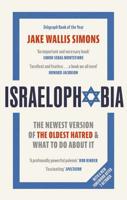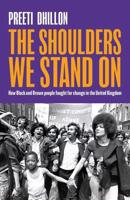Publisher's Synopsis
Contemporary cultural historians have located the Counter-Reformation as the most significant point in the material, intellectual, and spiritual development of Spain. Robust and full of productive contradictions, Spanish culture took a critical turn in 1492 when Ferdinand II, in his quest for purity and orthodoxy, expelled the Jews and Arabs from Spain.
Culture and Control in Counter-Reformation Spain examines the various modes of repression and social control exerted by Spanish institutions during the Counter-Reformation as they attempted to coerce marginalized groups (women and religious minorities - the moriscos and conversos) into political and cultural integration. This penetrating exploration demonstrates how the Catholic Church - mainly through the disciplinary technology of the Inquisition - assumed and exerted its authority as the "official" guardian of cultural and literary production. Culture and Control in Counter-Reformation Spain details the ways in which marginalized groups, through the communal linkage of their diverse social practices, were nonetheless able to resist repression and preserve cultural heterogeneity within the dominant society.











